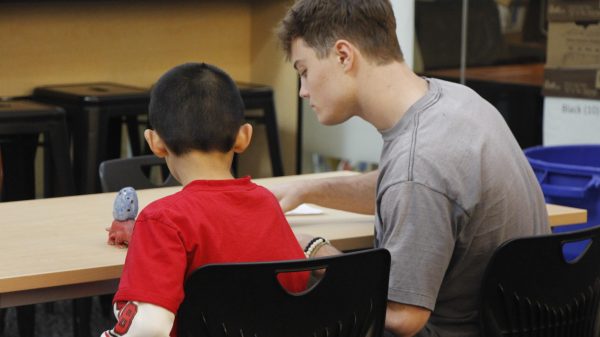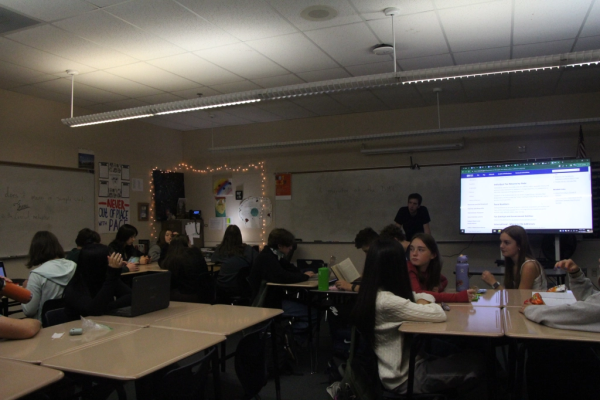Bringing publicity to English Language Development
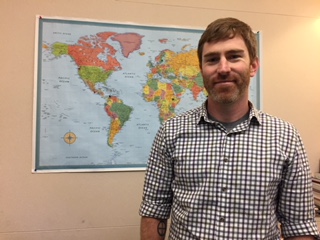
Alex Close, English Language Development Coordinator.
The word “English” fits for both of Alex Close’s job titles. Whether it’s teaching English as a subject, or the position of the English Language Development (ELD) coordinator, it’s safe to say that Close is heavily involved with language and the study of it.
Close is going on his third year as the ELD coordinator, a position that works to support students that are still learning English. He has been teaching for nine years total, but most of that time has been spent as an English teacher.
“I spent my first two years teaching at South Ridge High School in Beaverton,” Close said. “I taught what’s called sheltered classes, which is like an English class, but it’s full of English language learning students.”
Close was interested in continuing this position when he switched school districts, but the job was already taken.
“When the ELD teacher left, I jumped at the opportunity to work with these kids,” Close said. “I’ve been our ELD teacher for three years. I think this will be my third full year of doing it.”
Even after accepting the job, Close still spent most of his day focused on teaching regular English class.
“The last few years it was a really small portion of my schedule,” Close said. “Point two of my job was ELD and point eight was English. So I basically had one class period to serve all of the language learning students at our school, which is not enough.”
After advocating for a change in this balance last year, Close was given more time in his schedule that’s dedicated solely to English learning students.
“Now my position has flipped,” Close said. “So I’m point eight ELD and point two English. I still have one English 12 class and I have one ELD class, and then the rest of my day is open to serve students and collaborate with other teachers.”
School is difficult enough as it is, and that’s without the added challenge of a language barrier. Imagine what it’s like for students still learning the language that we speak so fluently throughout the halls.
“I can imagine and I’ve experienced how difficult it would be to try and pass biology while also learning English,” Close said. “So, it’s a population that’s vulnerable and that needs some support. In this district we have often not supported those students very well.”
“Especially if their first language is one that’s not the Latin-based alphabet, maybe Chinese or Arabic or something that uses a totally different alphabet. That’s really difficult,” Close said. “Those students would be put in a dedicated ELD class where they have a class period that’s just focused on helping them improve their English, wherever they’re at.”
“Our ELD class is first period,” Close said. “There’s only five students in there. And they’re at different levels, so some of them are working on vocabulary; just building their vocabulary. Some of them are working on complete sentences into a paragraph. Some of them are working on just making a complete sentence. So it’s a little bit different, but they’re all relatively new to the language or to our country.”
This year, there are multiple foreign exchange students studying abroad who are still in the process of learning English. Would they fit into this program?
“Foreign exchange students don’t qualify for ELD services,” Close said. “It’s a federally mandated, federally funded program. The federal government gives a little bit of extra money to provide extra support for ELD students and foreign exchange students don’t qualify.”
“I think it’s because they’re generally here for a short amount of time,” Close said. “Our ELD students, they’re part of our communities. They’re here for the long term. They’re going to graduate with us.”
This doesn’t mean that foreign exchange students are forced to navigate school completely alone, however.
“I still try to reach out to them and let them know that I’m here, and help them out with things if they need it. But they don’t qualify for the same level of support,” Close said.
With now a switched schedule that allows for more time dedicated to ELD students, Close is focusing more closely on bringing the attention back to the program.
“For a long time, these students have been hidden,” Close said. “I want to start to celebrate the fact that we have five multilingual students here and make that something that we celebrate and something that we know about, instead of pretending that they don’t exist.”
Your donation will support the student journalists of West Linn High School. Your contribution will allow us to continue to produce quality content by purchasing equipment, software, and continuing to host our website on School Newspapers Online (SNO).

Captivated by the art of storytelling, Skylar Moore, senior, joined journalism her freshman year as a way to explore her love for writing. Now going on...

























![Game, set, and match. Corbin Atchley, sophomore, high fives Sanam Sidhu, freshman, after a rally with other club members. “I just joined [the club],” Sidhu said. “[I heard about it] on Instagram, they always post about it, I’ve been wanting to come. My parents used to play [net sports] too and they taught us, and then I learned from my brother.”](https://wlhsnow.com/wp-content/uploads/2024/03/MG_7715-2-1200x800.jpg)
![At the bottom of the third inning, the Lions are still scoreless. Rowe stands at home plate, preparing to bat, while Vandenbrink stands off to the side as the next batter up. Despite having the bases loaded, the team was unable to score any runs. “It’s just the beginning of the season. We’re just going to be playing out best by June, [and] that’s where champions are,” Rowe said.](https://wlhsnow.com/wp-content/uploads/2024/03/IMG_3077-1200x900.jpg)





![The teams prepare to start another play with just a few minutes left in the first half. The Lions were in the lead at halftime with a score of 27-0. At half time, the team went back to the locker rooms. “[We ate] orange slices,” Malos said. “[Then] our team came out and got the win.”](https://wlhsnow.com/wp-content/uploads/2023/10/IMG_2385-1200x800.jpg)







































































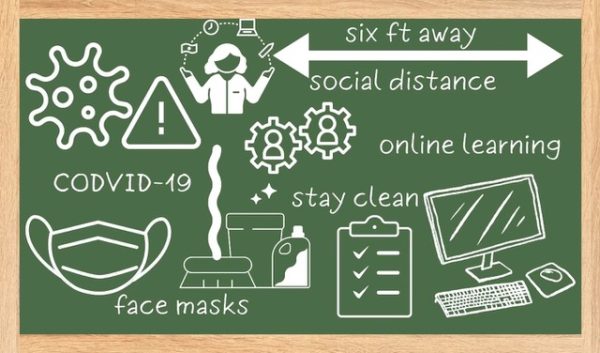
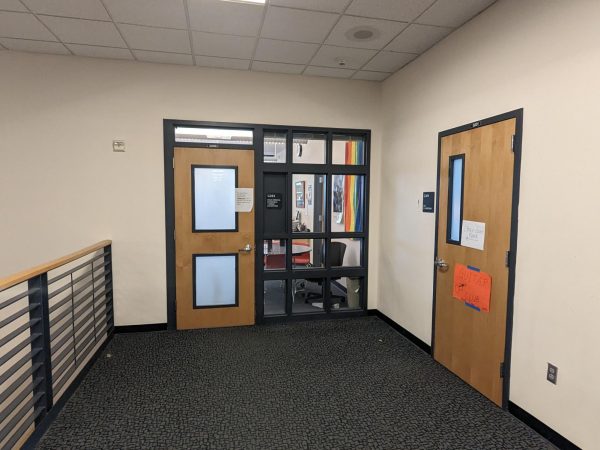
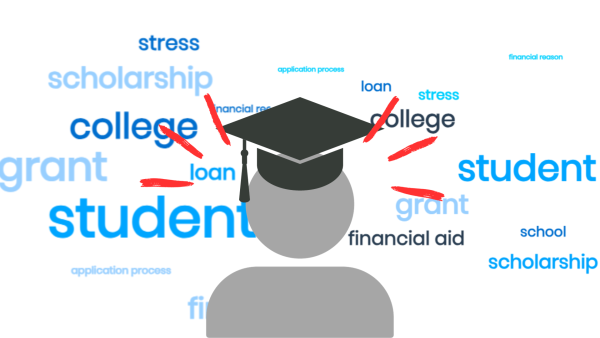

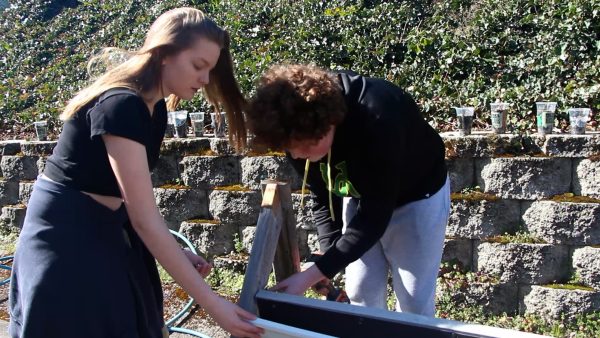
![Game, set, and match. Corbin Atchley, sophomore, high fives Sanam Sidhu, freshman, after a rally with other club members. “I just joined [the club],” Sidhu said. “[I heard about it] on Instagram, they always post about it, I’ve been wanting to come. My parents used to play [net sports] too and they taught us, and then I learned from my brother.”](https://wlhsnow.com/wp-content/uploads/2024/03/MG_7715-2-600x400.jpg)

